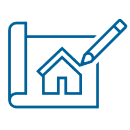Lease Accounting: How to Tackle ASC 842
For finance and accounting professionals at companies adopting the lease accounting standard ASC 842, here’s a roundup of our experts’ top implementation tips, technical accounting pointers, and lessons learned.
(1) Explore how ASC 842 impacts your company
Most private companies’ 2022 annual financial statements will need to reflect ASC 842, which aims to provide more comprehensive information to financial statement users. Adopting the new standard can be complex, presenting an array of impacts that company executives and accounting leaders should understand. These include:
- lease classification rules under ASC 840 and ASC 842,
- guidance and practical expedients for the transition,
- key accounting considerations and downstream effects on the business,
- and the accounting, business, and technology enablement considerations for an ASC 842 implementation.
Find more details in this article by Riveron experts Mark Jistel and Chris King.
(2) Address two common pain points of ASC 842
When adopting ASC 842, companies often face two primary technical application pain points:
- considering the discount rates used to calculate lease liabilities,
- and determining the fair value of certain leased assets.
Read related highlights compiled from a webinar hosted by Riveron’s Helen Mason, Tom Connell, and Ian Dams. Or watch the replay.
(3) Learn from other companies’ ASC 842 journeys
Best practices for adopting the lease accounting standard often parallel other business transformation events, and companies can learn lessons from those who have already adopted the standard. To address both known and unknown challenges, companies can employ tried-and-true governance principles and a project management toolkit.
Explore more about lessons learned from companies that have already adopted the lease accounting standard by reading these insights authored by Riveron experts Matt Tepfenhart and Steven Sayewitz.
Steps to ensure a smooth transition to the new lease accounting standard include:

Reconcile system or manual calculations to what is recorded in the general ledger (GL), ensuring that legacy balances such as deferred rent have been appropriately cleared.

Regularly review the GL to ensure that inputs and calculations are continuing to be properly entered according to the new process.

Identify the right people within the lease management cycle by utilizing subject matter experts in operations, IT, accounting, and financial reporting for the appropriate business function.

Create documentation with use cases for common scenarios encountered such as end-of-term events, payment adjustments, and incremental borrowing rates (IBR) and foreign exchange updates.

Iterate when using lease accounting software by staying on top of system updates and training, and proactively maintain contact with the software provider or implementation partner as many systems continually refine the technical functionality and user best practices.

Anticipate audit inquiries by preparing documentation and support for high-risk areas such as required company judgement, estimates, and policy decisions.

Continue to refine processes by building on lessons learned during data abstraction and implementation. Identify which information was difficult to receive or validate and build out controls and dependencies around those processes going forward.





